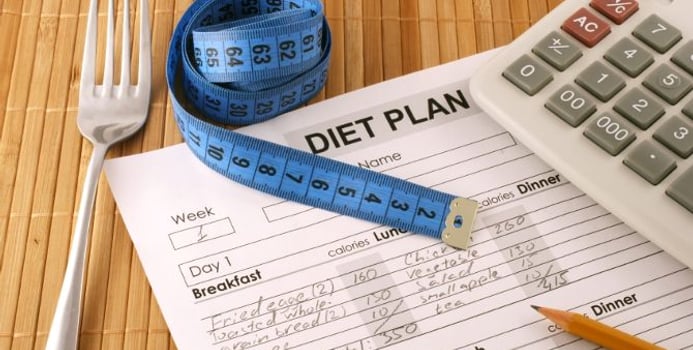Most of my patients rarely remember what they ate yesterday, let alone breakfast this morning. Quickly jotting down what you eat throughout the day will help jog your memory. Food journaling is essential to help you remember the foods you eat in order to keep track of how much you consume in a day. Knowing these facts will help you meet your dietary goals, whether you are trying to lose weight or incorporating more fruits and vegetables in your diet.
1. Whether or Not Your Diet is balanced
Tracking the foods you eat is important because it can tell you how much of each food group you consume, if you drink enough fluids throughout the day, or even why you may be hungry. This information will help make changes to your diet, helping you to meet your goals. For example, a few months ago, when I looked back at my food journal for the week, I noticed that a couple of hours after breakfast, I was starving. My normal breakfast used to consist of a small bowl of high fiber cereal but as a result of my food journal review, I changed my breakfast to incorporate some extra lean protein in addition to my daily dose of cereal, to keep hunger pains away. If you want to start losing weight, a food journal will show your normal dietary habits, helping you identify specific foods that you may need to decrease or eliminate from your diet.
2. How What You're Eating Affects You
Food journaling
can help you determine reasons why you are tired at certain times, why you
may have felt frustrated, or what food keeps you going for the day. That is why, in
addition to writing what foods you eat, also indicate how you feel before and when you are eating (tired, awake,
hungry, full, etc).
3. How When You're Eating Affects You
We know that our health is directly affected by what we eat, but did you realize that what time of day also can cause us to feel a certain way? Pay attention to your food journal when it comes to your health-- it will tell you if you're waiting too long between meals (or if you're not waiting long enough and overeating). Log when your meals occur and make sure you're eating only when you're really hungry. But also be sure not to wait too long before your next meal or snack. For instance, one of my clients always had headaches late in the afternoon, and realized that she waited too long between meals. Her body was letting her know it was time to take a break and eat. Now, she makes sure she sits down to eat a snack every afternoon and she no longer has headaches.While it is important to record what you eat, it can be difficult to take the time to do it. You want to try to make food journaling a routine. The best time to journal is right after (or during) a meal because you will recall all the important details. On a semi weekly basis (or more frequently if time permits), review your journal in order to help you identify foods that you may need to change in your diet to help meet your goals.
Remember that the more details you include in your food journal, the easier it will be able to make changes in your diet. Practice makes perfect; the more often you write in your journal, the more it will become routine. So start journaling!
Rhea Li is a Registered Dietitian who received her Bachelor's degree in Nutrition and Master's degree in Public Health from the University of Texas. She has a special interest in working with children and has received her certification in pediatric weight management. Currently, she is working on a research study to determine the importance of nutrition in pediatric cancer patients. In the past, she has worked with pregnant women and their children. In her spare time, she enjoys being with family, exercising, traveling and of course, eating.



